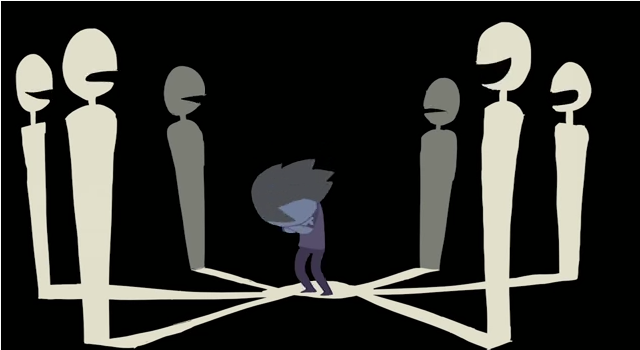If you’ve ever been alive—and the fact that you’re reading this article is a fairly strong indicator that you currently are—then you know someone who’s been bullied, and you probably know someone who’s been the bully. You might even be one—or both—of those people. If you were, we want to know your story. (Keep reading.)
We all know that bullying is an epidemic in this country. Even if we haven’t read the articles or seen the statistics, we’ve all been to school. And in fact, the latest numbers released by the U.S. Department of Health and Human Services state that 37% of teens report being bullied at school. To break down that statistic: That’s more than a third of teenagers who have been bullied and will admit to being bullied. This number doesn’t include all those who don’t report it (likely a huge number), nor does it include children in elementary school. The number of students who bully others often, however that statistic is determined, is reported to be 17%.
Of course, with the development of cyber bullying, those numbers are growing. Kids and teens who wouldn’t otherwise stand up and verbally or physically taunt others can hide behind the anonymity of the Internet and launch attacks from there. None of this is new information. What is new, however, is just how permanent the effects of this bullying can be.
A team of psychiatrists at Duke University published a study last week that provides evidence that childhood bullying is a trauma that can be linked to adulthood psychological disorders. While some may have guessed that link existed before, this study is the first time such comprehensive analysis was done on a long-term scale. Others may not have even seen this coming—the lead author of the study, William E. Copeland, was surprised by his own findings: “To be honest, I was completely surprised by the strength of the findings,” he told Slate in an interview.
Another surprising finding: Those who are “bully-victims,” or children who both are bullied and bully others, have the strongest psychological problems as children and as adults, with heightened risk for anxiety, depression, and suicidal thinking. Bullies are at higher risk for antisocial personality disorder as adults, and victims are at a higher risk of depression and anxiety. Sadly, these statistics held even when adjusted for home life: All three groups of kids were at equal risk for adulthood psychological disorders even if they came from healthy families, though victims were at a lower risk of depression when their home lives were stable.
How does one define bullying, though? I know in my school, everyone was teased. I was teased, and I certainly teased others. But the authors of this study focused specifically on those children for whom bullying is not an isolated incident or minimal teasing, but “physical or verbal harassment that takes place repeatedly and involves a power imbalance,” according to Slate.
This isn’t behavior that can be brushed off with, “kids will be kids.” Bullying is aggressive actions and attacks, with long-lasting ramifications that can lead to lifelong psychological disorders and even suicide. Even when kids grow up and become college students or working adults, their past doesn’t stay in their past; it shapes who they are as adults.
One former victim, Shane Koyczan, was bullied repeatedly for being overweight. He took that pain and made it into art, in the form of a spoken poem read aloud to a wrenching video (above) designed to call attention to the issue of bullying, and designed the To This Day Project, to help confront bullying. His spoken poem echoes what the study has proven: “our lives will only ever always/continue to be/a balancing act.” And yet the video inspires hope as well: “we stem from a root planted in the belief/that we are not what we were called.”
You, dear readers, are most likely college students or young adults. You went to school, and maybe you were bullied. Maybe you bullied others. We all have a story, and those stories make up who we are today. We invite you to share your story with us at simi@newvoices.org, and we’d like to publish these stories to remind others that bullying doesn’t just “go away.” It’s a trauma that can hurt forever—or that can be harnessed into a power of good, for helping others who were in the same position. Tell us your stories, and tell us how those memories shape who you are today.

